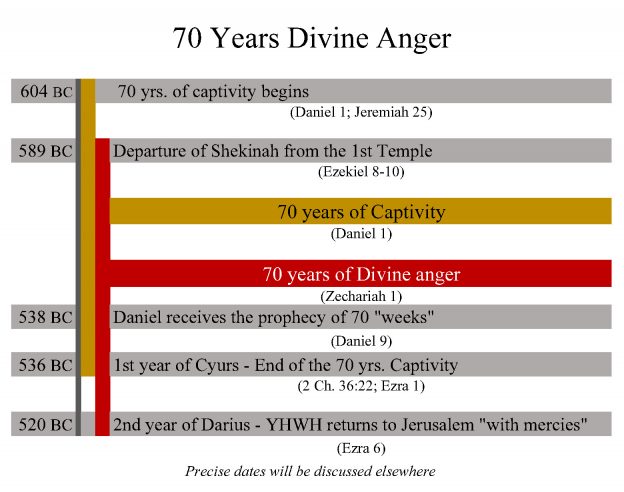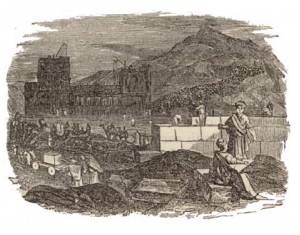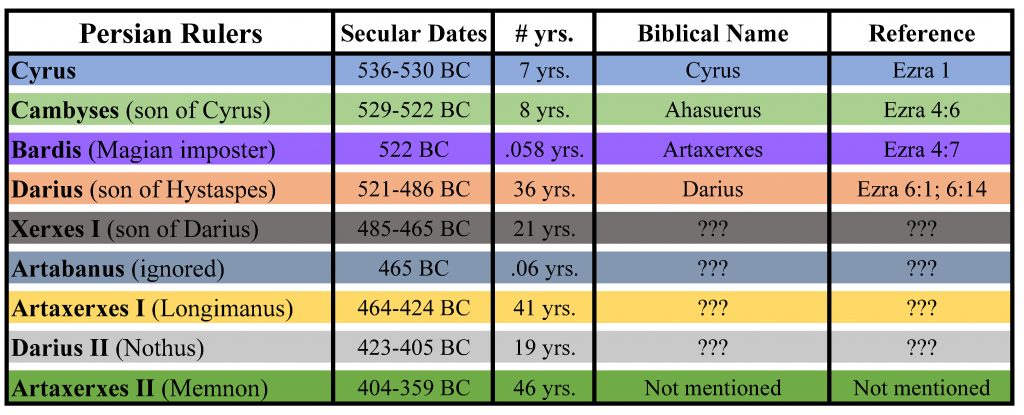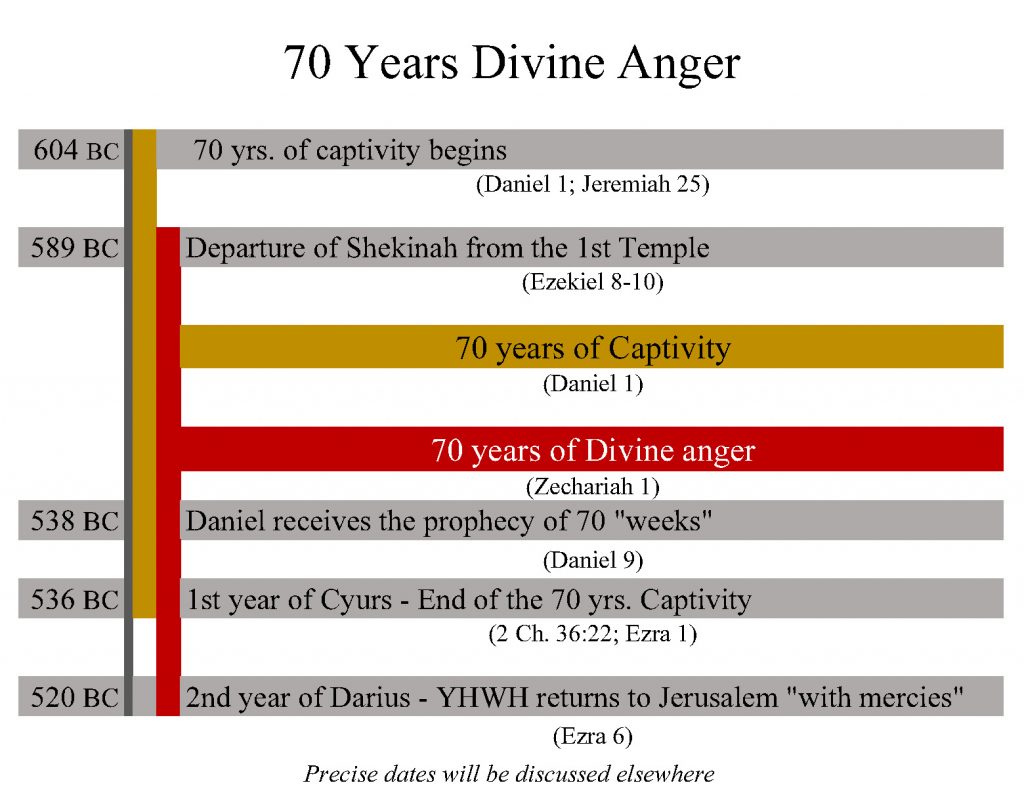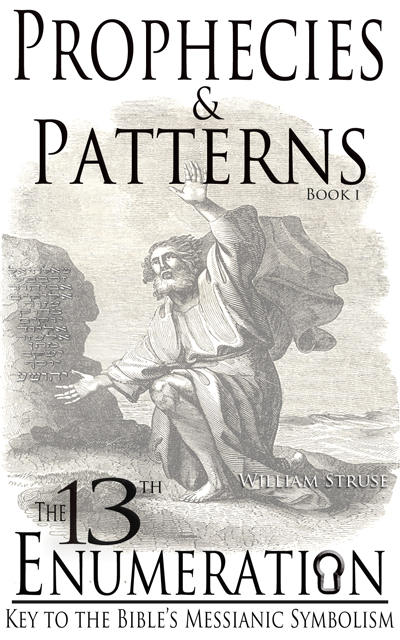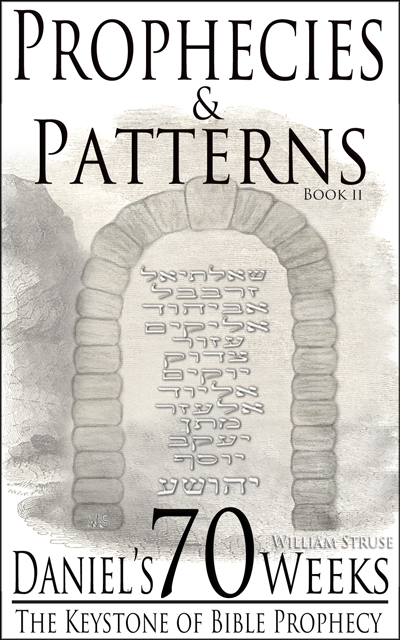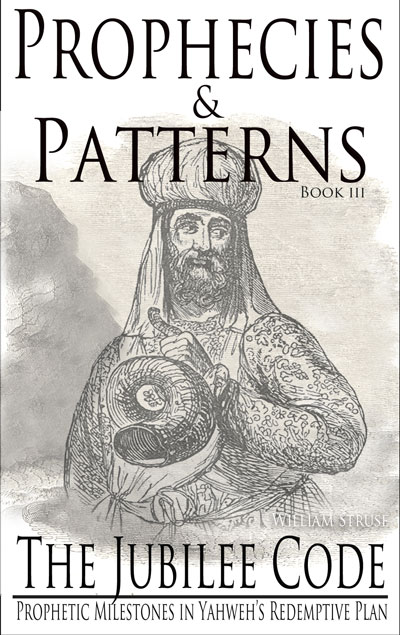In my ongoing effort to untangle the claims and criticisms raised by Rick Lanser in his recent article The Seraiah Assumption (published at the Associates for Biblical Research website) this week we will be exploring the context of Ezra 5-6 as it relates to the Persian king Darius (son of Hystaspes) and as it relates to Ezra, Nehemiah, and a divine command given by, Yahweh the living God of the Bible, telling the Jewish people to – return – and build His house.
This important aspect of 2nd temple era history is for the most part ignored by Mr. Lanser in his article The Seraiah Assumption and this oversight along with his errors concerning the chronology of Ezra 4 (See Part I of this series) creates unnecessary confusion regarding the events leading up to Ezra and Nehemiah’s arrival in Jerusalem during the reign of a Persian “Artaxerxes”.
Here are a few related quotes from Mr. Lanser article The Seraiah Assumption which illustrate how his misunderstanding of Ezra 4 helped influence his interpretation of Ezra 6. I’d encourage those just joining this conversation to read Mr. Lanser’s entire article (here) so you can get the full context of these quotes. Further these quotes show why trying to explain Ezra 6:14 and the “commandments” mentioned there without providing the background context of Ezra 4-6 leads to some pretty serious interpretational errors that unnecessarily confuse the subject. I quote Mr. Lanser:
But as illustrated by our examination of Ezra 4 above, his context is too limited. It needs to be expanded beyond the immediate chronological context of Ezra 6:14, to include proper regard for the writer’s thematic context. When this is done, it provides the third “commended” king of Persia—Artaxerxes I Longimanus—that Austin could not find under the constraints of his purely chronological approach….
We are to understand that the writer presents the commandment of God in Ezra 6:14 as a single overarching decree, yet manifested through the individual edicts issued by Cyrus, Darius and Artaxerxes. This one decree of God—the word is a singular noun—is not completely unfolded until Artaxerxes contributes his part, notwithstanding that it is somewhat removed in time from the earlier contributions of Cyrus and Darius….
Before moving on, one more point can be made: since Ezra 6:14 tells us the one command of God had three kings involved in its outworking, we cannot say the decree of Daniel 9:25 had fully “gone forth” until Artaxerxes Longimanus added his contribution. We have to wait until Artaxerxes’ reign to find Daniel’s prophesied decree. (Rick Lanser – excerpts taken from his article The Seraiah Assumption)
Summary and Review of the Context of Ezra 4
In Part I of this series Cyrus to Darius: The 2nd Temple Context of Ezra 4 we learned that author of Ezra 4 provided a congruent and chronological summary of events which took place from the reign of the Persian king Cyrus up to the reign of Darius (son of Hystaspes). We learned that Cyrus gave the initial decree which allowed the Jewish people to return and build the city of Jerusalem and the temple. Then during the reign of the Persian Ahasuerus in Ezra 4:6 (Cambyses), counselors for the enemies of the Jewish people tried to stop these construction efforts to no effect.
Subsequently during the reign of a Persian Artaxerxes in Ezra 4:7-23 (Bardis), the enemies of the Jewish people were successful and construction on the temple was stopped. Ezra 4:24 tells us that construction was stopped until the 2nd year of the reign of Darius.
23 Now [‘edayin] when the copy of king Artaxerxes’ letter was read before Rehum, and Shimshai the scribe, and their companions, they went up in haste to Jerusalem unto the Jews, and made them to cease by force and power.
24 Then [‘edayin] ceased the work of the house of God which is at Jerusalem. So it ceased unto the second year of the reign of Darius king of Persia. (Ezra 4:22-24)
The Prophesying of Haggai and Zechariah
Ezra 4 closed with the nearly hopeless state of affairs in Jerusalem. The Jewish peoples efforts to restore Yahweh’s house had come to a standstill. The Persian king Artaxerxes (Bardis – the magian userper) had commanded that construction be stopped and the enemies of the Jewish people had done so by force of arms.
Then just when all hope seemed to be lost, once again Yahweh the living God of the Bible, reached down into the affairs of mankind to set in motion His redemptive plan for mankind. Ezra 5 opens with Haggai and Zechariah prophesying to the Jewish people. The text doesn’t say what was prophesied but the result was immediate. Here take a look:
Then the prophets, Haggai the prophet, and Zechariah the son of Iddo, prophesied unto the Jews that were in Judah and Jerusalem in the name of the God of Israel, even unto them.
Then rose up Zerubbabel the son of Shealtiel, and Jeshua the son of Jozadak, and began to build the house of God which is at Jerusalem: and with them were the prophets of God helping them. (Ezra 5:1-2)
So what do you think these prophets said that so challenged Joshua, Zerubbabel, and the Jewish people that they defied king Artaxerxes orders to stop construction? To find the answer we need to turn to the books of Haggai and Zechariah.
In the second year of Darius the king, in the sixth month, in the first day of the month, came the word [dabar] of YHWH by Haggai the prophet unto Zerubbabel the son of Shealtiel, governor of Judah, and to Joshua the son of Josedech, the high priest, saying,
2 Thus speaketh YHWH of hosts, saying, This people say, The time is not come, the time that YHWH’S house should be built. 3 Then came the word of YHWH by Haggai the prophet, saying, 4 Is it time for you, O ye, to dwell in your cieled houses, and this house lie waste? 5 Now therefore thus saith YHWH of hosts; Consider your ways….
Thus saith YHWH of hosts; Consider your ways. 8 Go up to the mountain, and bring wood, and build the house; and I will take pleasure in it, and I will be glorified, saith YHWH.
9 Ye looked for much, and, lo, it came to little; and when ye brought it home, I did blow upon it. Why? saith YHWH of hosts. Because of mine house that is waste, and ye run every man unto his own house. 10 Therefore the heaven over you is stayed from dew, and the earth is stayed from her fruit. 11 And I called for a drought upon the land, and upon the mountains, and upon the corn, and upon the new wine, and upon the oil, and upon that which the ground bringeth forth, and upon men, and upon cattle, and upon all the labour of the hands.
12 Then Zerubbabel the son of Shealtiel, and Joshua the son of Josedech, the high priest, with all the remnant of the people, obeyed the voice of YHWH their God, and the words of Haggai the prophet, as YHWH their God had sent him, and the people did fear before YHWH. 13 Then spake Haggai YHWH’S messenger in YHWH’S message unto the people, saying, I am with you, saith YHWH.
And YHWH stirred up the spirit of Zerubbabel the son of Shealtiel, governor of Judah, and the spirit of Joshua the son of Josedech, the high priest, and the spirit of all the remnant of the people; and they came and did work in the house of YHWH of hosts, their God, In the four and twentieth day of the sixth month, in the second year of Darius the king. (Haggai 1:1-15, excerpted for brevity)
Doing What is Right in the Face of Adversity
A few things to notice from Haggai 1. First of all it is apparent that Yahweh was displeased with attitude of the Jewish people related to their efforts in building His house. Notice they were “building” their own houses. In fact construction activities were taking place in the city of Jerusalem but the people had their priorities wrong. They were building their own houses while Yahweh’s house lay desolate.
How many times in life have we excused our own lack of service to Yahweh by complaining about our circumstances? “I would have been nicer to that person if they hadn’t been so mean.” “I would have helped that person but I just lost my job.” “I would have done the right thing but the “law” says I can’t.”
That is what Yahweh was dealing with here regarding the construction of His house. His people weren’t really all that interested doing His work. They were just looking for excuses. Remember they’d been “building” the temple since the 2nd year of Cyrus and they still hadn’t even completed the foundation yet. When Artaxerxes said that they couldn’t build Yahweh’s house any longer they simply used that “law” as an excuse for not doing what was right in Yahweh’s eyes.
There is a valuable lesson here. Notice the text indicates their poor lot in life was in part related to their unwillingness to do what was right in Yahweh’s eyes. Yahweh was punishing their bad attitude and improper priorities.
Another thing worth noting here was that the counselors hired to represent the enemies of the Jewish people before the kings of Persia, framed the activities of the Jewish as if they were building the city of Jerusalem in an effort to rebel against the king of Persia, when in fact it was their half hearted efforts to build the temple that were really the concern. This just illustrates an important fact of life.
This life is a spiritual battle not against flesh and blood but against the “principalities, powers, and against the rulers of the darkness of this world.” Satan didn’t care if the Jewish people were building their own houses. What the adversary did care about was the reestablishment of Yahweh’s house and spiritual significance of that house. The temple of Jerusalem was the beating heart of the city of Jerusalem.
Building Yahweh’s House Was Building Jerusalem
This raises a curious point. Today most scholars claim that building the temple in Jerusalem was not “building” Jerusalem, despite the fact that the enemies of the Jewish people thought so (Ezra 4), Yahweh thought so (Zech 1; Hag. 1), and Daniel thought so (Dan. 9:4-22). To me such claims seems like a distinction without a difference. To claim building the temple was not “building Jerusalem” makes about the same sense as saying the development of the human heart in a baby is not part of the divine “building” process of our body that Yahweh encoded into the DNA of this human tabernacle. By any objective measure, building the temple in Jerusalem was indeed, “building” Jerusalem.
Zechariah receives the “word” of Yahweh
As stated in Ezra 5, it just wasn’t Haggai that received the word of Yahweh which commanded the Jewish people to return and build the temple. Zechariah also received a similar message to share with the Jewish people.
In the eighth month, in the second year of Darius, came the word [dabar] of YHWH to Zechariah, the son of Berechiah, the son of Iddo the prophet, saying, 2 YHWH hath been sore displeased with your fathers. 3 Therefore say thou unto them, Thus saith YHWH of hosts; Turn ye unto me, saith YHWH of hosts, and I will turn unto you, saith YHWH of hosts….
Upon the four and twentieth day of the eleventh month, which is the month Sebat, in the second year of Darius, came the word [dabar] of YHWH unto Zechariah, the son of Berechiah, the son of Iddo the prophet, saying,…
12 Then the angel of YHWH answered and said, O YHWH of hosts, how long wilt thou not have mercy on Jerusalem and on the cities of Judah, against which thou hast had indignation these threescore and ten years? 13 And YHWH answered the angel that talked with me with good words and comfortable words.
14 So the angel that communed with me said unto me, Cry thou, saying, Thus saith YHWH of hosts; I am jealous for Jerusalem and for Zion with a great jealousy. 15 And I am very sore displeased with the heathen that are at ease: for I was but a little displeased, and they helped forward the affliction.
16 Therefore thus saith YHWH; I am returned to Jerusalem with mercies: my house shall be built in it, saith YHWH of hosts, and a line shall be stretched forth upon Jerusalem. 17 Cry yet, saying, Thus saith YHWH of hosts; My cities through prosperity shall yet be spread abroad; and YHWH shall yet comfort Zion, and shall yet choose Jerusalem. (Zechariah 1:1-3, 7, 14-17)
There is so much important information here which grounds our understanding of the 2nd temple era on a solid contextual foundation.
First all notice that like the word give to Haggai this “word” (dabar) of Yahweh also came in the 2nd year of Darius. This word told the Jewish people that Yahweh had returned to Jerusalem with “mercy” and that His house would be build and that a line would be “stretched forth upon Jerusalem.” In other words, Yahweh told the Jewish people that His house, the very heart of Jerusalem, was to be built and this effort was in fact building or stretching a construction “line” upon Jerusalem.
Notice here that the text indicates that up to this 2nd year of Darius, Jerusalem and the Jewish people and their activities were under a cloud of divine “indignation”. That divine indignation the text tells us began 70 years earlier and then ended here in the 2nd year of Darius when Yahweh “returned to Jerusalem with mercies”. What is so neat about this statement is that it once again confirms just how accurate the Bible’s chronological record is when it relates history.
If we count 70 years back from the 2nd year of Darius (son of Hystaspes) in 520 BC we arrive at roughly 589 BC and what Ezekiel 8-10 describes as the departure of Yahweh’s divine presence from Solomon’s temple in Jerusalem. How awesome is that. 70 years after departing from Jerusalem and the temple, here is Yahweh the living God of the Bible, telling Zechariah and Haggai the prophets that He had “returned” to Jerusalem with mercies and He wanted construction on His house restarted.
As you look at the following chart remember that Part I of this series showed how the author of Ezra 4 gave an incredibly accurate summary of events between the reigns of Cyrus and Darius, a summary which fits congruently with secular Persian history. In the chart below both of those important ‘bookends’ (Cyrus & Darius) of this chronology are further emphasized by marking the end of a 70 year period of time. That’s how cool the Bible!
The Temple Completed in the 6th Year of Darius
Four years after Yahweh had returned to Jerusalem with mercies and commanded the Jewish people to return and build His house, that house was completed. The beating heart of Jerusalem was once again serving it’s purpose in the city of peace. That’s what happens when we listen to Yahweh and do what’s right even in the face of adversity. As the Paul wrote to the Romans:
If God be for us, who can be against us? (Romans 8:31b)
Darius Rebukes the Enemies of the Jewish People
Let’s back up here for just a few moments now that we understand the context of Yahweh’s divine command to restore (return) and build the temple as given through the prophets Haggai and Zechariah. We left off in Ezra 5 with the following verses for which you now known the fascinating back-story and context.
Then the prophets, Haggai the prophet, and Zechariah the son of Iddo, prophesied unto the Jews that were in Judah and Jerusalem in the name of the God of Israel, even unto them.
Then rose up Zerubbabel the son of Shealtiel, and Jeshua the son of Jozadak, and began to build the house of God which is at Jerusalem: and with them were the prophets of God helping them. (Ezra 5:1-2)
Once construction on the temple resumed it didn’t take long for the enemies of the Jewish people to try and stop this divinely sanctioned effort. This time though the Jewish people held firm, they were more afraid of Yahweh than the former decree of the Persian king Artaxerxes. So the matter was taken to king Darius and the Jewish people claimed precedence in the former decree of king Cyrus who had given them permission to build both the city and the temple.
Darius had a different attitude than the Magian usurper Bardis, so he made a search of the records and found the decree of Cyrus granting the Jewish people the right to return and build. Darius then wrote his own rather scathing letter to these enemies of the Jewish people telling them to leave the Jewish people alone or else! Here is an excerpt with some of the highlights. I’d encourage you to read all of Ezra 5 & 6 to get the full context.
Then Darius the king made a decree, and search was made in the house of the rolls, where the treasures were laid up in Babylon2 And there was found at Achmetha, in the palace that is in the province of the Medes, a roll, and therein was a record thus written:
In the first year of Cyrus the king the same Cyrus the king made a decree concerning the house of God at Jerusalem, Let the house be builded, the place where they offered sacrifices, and let the foundations thereof be strongly laid; the height thereof threescore cubits, and the breadth thereof threescore cubits;…
Now therefore, Tatnai, governor beyond the river, Shetharboznai, and your companions the Apharsachites, which are beyond the river, be ye far from thence: 7 Let the work of this house of God alone; let the governor of the Jews and the elders of the Jews build this house of God in his place. (Ezra 6:1-7 )
Finally Ezra 6:13-15 provides another chronological panoramic by summing up the chronology from Ezra 5 (the prophesying of Haggai and Zechariah the word-dabar of Yahweh) and those who gave commands which resulted in the completion of the temple by the 6th year of Darius.
Then Tatnai, governor on this side the river, Shetharboznai, and their companions, according to that which Darius the king had sent, so they did speedily.
And the elders of the Jews builded, and they prospered through the prophesying of Haggai the prophet and Zechariah the son of Iddo. And they builded, and finished it, according to the commandment of the God of Israel, and according to the commandment of Cyrus, and Darius, and Artaxerxes king of Persia.
And this house was finished on the third day of the month Adar, which was in the sixth year of the reign of Darius the king. (Ezra 6:13-15)
Let’s unpack this a bit more to make sure we can understand exactly what these verses are saying. Verse 13 tells that the enemies of the Jewish people obeyed the threatening letter of Darius and they left off harassing the Jewish people.
Verse 14 summarizes the history up to that point. First of all it points out that prophesying of Haggai and Zechariah was the catalyst that spurred the Jewish people’s return to the building efforts, the result of which was their “prospering” as Yahweh promised in Haggai 1 and Zechariah 1. The text further clarifies that building – and – finishing of the temple was the result of a command by the “God of Israel” and also the commands of Cyrus, Darius, and Artaxerxes.
For right now let’s not deal with the curious inclusion of Artaxerxes as one of those who helped build and finish the temple by the 6th year of Darius. We’ll explore that subject in the next part of this series, for now let focus on the other “commandments” first. Based upon the context we have explored in Ezra 4-6 does the Bible identify specific commands related to Yahweh, Cyrus & Darius which resulted in the building and finishing of the temple by the 6th year of Darius? Sure it does. Here are the commands as they took place chronologically.
Cyrus
In 536 BC Cyrus ended the 70 years captivity of the Jewish people in Babylon. He allowed them to return and build the temple and the city of Jerusalem.
That saith of Cyrus, He is my shepherd, and shall perform all my pleasure: even saying to Jerusalem, Thou shalt be built; and to the temple, Thy foundation shall be laid. (Isaiah 44:28)
Yahweh
After construction was stopped on the temple by the Persian king “Artaxerxes”, Yahweh in the 2nd year of Darius (520 BC) personally commanded Israel to return and build. This “commandment” was given as a word (dabar) of Yahweh through the prophets Haggai and Zechariah.
In the second year of Darius the king, in the sixth month, in the first day of the month, came the word [dabar] of YHWH by Haggai the prophet unto Zerubbabel the son of Shealtiel, governor of Judah, and to Joshua the son of Josedech, ….
Thus saith YHWH of hosts; Consider your ways. 8 Go up to the mountain, and bring wood, and build the house; and I will take pleasure in it, and I will be glorified, saith YHWH. (Haggai 1:1-8 for brevity)
Upon the four and twentieth day of the eleventh month, which is the month Sebat, in the second year of Darius, came the word [dabar] of YHWH unto Zechariah, the son of Berechiah, the son of Iddo the prophet, saying, …
Then the angel of YHWH answered and said, O YHWH of hosts, how long wilt thou not have mercy on Jerusalem and on the cities of Judah, against which thou hast had indignation these threescore and ten years?
13 And YHWH answered the angel that talked with me with good words [dabar] and comfortable words [dabar]….
Thus saith YHWH of hosts; I am jealous for Jerusalem and for Zion with a great jealousy….
Therefore thus saith YHWH; I am returned to Jerusalem with mercies: my house shall be built in it, saith YHWH of hosts, and a line shall be stretched forth upon Jerusalem. (Zechariah 1:7-16 exerpted for brevity)
14 And the elders of the Jews builded, and they prospered through the prophesying of Haggai the prophet and Zechariah the son of Iddo.
And they builded, and finished it, according to the commandment of the God of Israel, and according to the commandment of Cyrus, and Darius, and Artaxerxes king of Persia. 15 And this house was finished on the third day of the month Adar, which was in the sixth year of the reign of Darius the king. (Ezra 6:14-15 excerpted for brevity)
Darius
In 520 BC Darius confirms Cyrus’ original decree and encourages the Jewish to continue their efforts to build the temple which Yahweh had commanded them to do. Four years later in the 6th year of Darius the temple was completed.
Now therefore, Tatnai, governor beyond the river, Shetharboznai, and your companions the Apharsachites, which are beyond the river, be ye far from thence:
Let the work of this house of God alone; let the governor of the Jews and the elders of the Jews build this house of God in his place. Moreover I make a decree what ye shall do to the elders of these Jews for the building of this house of God: that of the king’s goods, even of the tribute beyond the river, forthwith expenses be given unto these men, that they be not hindered.
Also I have made a decree, that whosoever shall alter this word, let timber be pulled down from his house, and being set up, let him be hanged thereon; and let his house be made a dunghill for this. And the God that hath caused his name to dwell there destroy all kings and people, that shall put to their hand to alter and to destroy this house of God which is at Jerusalem. I Darius have made a decree; let it be done with speed. (Ezra 6:6-12)
Comparing and Contrasting with The Seraiah Assumption
Now after exploring the context of Ezra 4-6 in a congruent and chronological manner consider the following quotes by Mr. Lanser once again. Do you think they represent an accurate explanation of the events Ezra 4-6 relates:
We are to understand that the writer presents the commandment of God in Ezra 6:14 as a single overarching decree, yet manifested through the individual edicts issued by Cyrus, Darius and Artaxerxes. This one decree of God—the word is a singular noun—is not completely unfolded until Artaxerxes contributes his part, notwithstanding that it is somewhat removed in time from the earlier contributions of Cyrus and Darius….
Doing this equates the command of God with the three-fold human command (singular!) of Cyrus, Darius and Artaxerxes. That Brown’s view of the waw explicativum is possible does not necessarily make it so, of course, but it does show that Struse and Austin are not being equitable in the way they evaluate the translation possibilities. Fair-mindedness towards the data requires that they not insist their preferred view of this grammar question is the only one possible.
Before moving on, one more point can be made: since Ezra 6:14 tells us the one command of God had three kings involved in its outworking, we cannot say the decree of Daniel 9:25 had fully “gone forth” until Artaxerxes Longimanus added his contribution. We have to wait until Artaxerxes’ reign to find Daniel’s prophesied decree.
The claims Mr. Lanser makes in the statements above is why understanding the entire context of subject is so important. The commandment of God in Ezra 6:14 is not an ambiguous overarching thematic decree. Rather it was a very specific word (dabar) to restore and build Jerusalem given within a very specific sequence of chronological events and relayed through the mouths of the two prophetic witnesses of Haggai and Zechariah. That word (dabar) given in the 2nd year of Darius by Yahweh, the living God of the Bible, commanded the Jewish people to return and build His house, the beating heart of Jerusalem.
This context is so important lets summarize one last time:
23 Now [‘edayin] when the copy of king Artaxerxes’ letter was read before Rehum, and Shimshai the scribe, and their companions, they went up in haste to Jerusalem unto the Jews, and made them to cease by force and power.
24 Then [‘edayin] ceased the work of the house of God which is at Jerusalem. So it ceased unto the second year of the reign of Darius king of Persia. (Ezra 4:23 – 24)
Then the prophets, Haggai the prophet, and Zechariah the son of Iddo, prophesied unto the Jews that were in Judah and Jerusalem in the name of the God of Israel, even unto them. Then rose up Zerubbabel the son of Shealtiel, and Jeshua the son of Jozadak, and began to build the house of God which is at Jerusalem: and with them were the prophets of God helping them. (Ezra 5:1)
In the second year of Darius the king, in the sixth month, in the first day of the month, came the word [dabar] of YHWH by Haggai the prophet unto Zerubbabel the son of Shealtiel, governor of Judah, and to Joshua the son of Josedech, ….
Thus saith YHWH of hosts; Consider your ways. 8 Go up to the mountain, and bring wood, and build the house; and I will take pleasure in it, and I will be glorified, saith YHWH. (Haggai 1:1-8 for brevity)
5 But the eye of their God was upon the elders of the Jews, that they [the enemies of the Jewish people] could not cause them to cease, till the matter came to Darius: and then they returned answer by letter concerning this matter. (Ezra 5:5)
Ezra 6:1 Then Darius the king made a decree, and search was made in the house of the rolls, where the treasures were laid up in Babylon….
7 Let the work of this house of God alone; let the governor of the Jews and the elders of the Jews build this house of God in his place. 8 Moreover I make a decree what ye shall do to the elders of these Jews for the building of this house of God: that of the king’s goods, even of the tribute beyond the river, forthwith expenses be given unto these men, that they be not hindered. ( Ezra 6:7-8 )
13 Then Tatnai, governor on this side the river, Shetharboznai, and their companions, according to that which Darius the king had sent, so they did speedily.
14 And the elders of the Jews builded, and they prospered through the prophesying of Haggai the prophet and Zechariah the son of Iddo. And they builded, and finished it, according to the commandment of the God of Israel, and according to the commandment of Cyrus, and Darius, and Artaxerxes king of Persia. 15 And this house was finished on the third day of the month Adar, which was in the sixth year of the reign of Darius the king. (Ezra 6:13-15)
Summary
In our exploration of the book of Ezra to date, we’ve learned that it is a straightforward and chronological account of the events relating to the building of the city of Jerusalem and the Temple starting in the 1st year of the Persian king Cyrus (536 BC) and continuing through to the 6th year of the Persian king Darius (son of Hystaspes) in 516 BC. The central focus of these events being Yahweh’s divine word (dabar) commanding the Jewish people to return and build His desolate sanctuary. This divine word we have learned came at the end of His 70 years of divine anger.
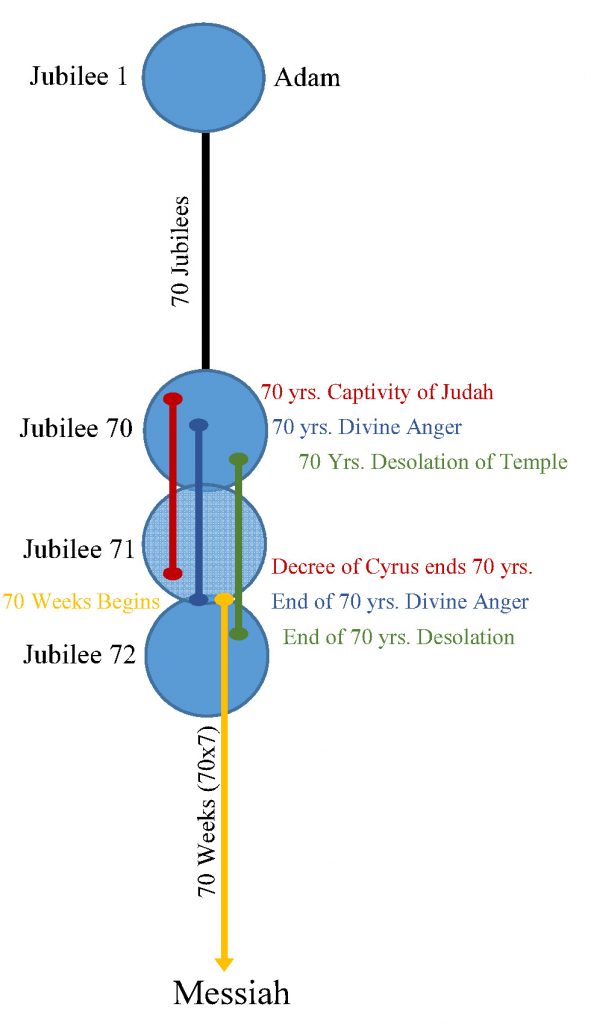 As I’ve demonstrated in my book The Jubilee Code: Prophetic Milestones in Yahweh’s Redemptive Plan, a reasonable case can be made that the 70 years of Babylonian captivity, the 70 years of divine anger, and the 70 years between the destruction of the Solomon’s temple and rebuilding and dedication of the 2nd temple, were a trifecta of 70 years periods which all had their origins within the 70th Jubilee cycle from Adam.
As I’ve demonstrated in my book The Jubilee Code: Prophetic Milestones in Yahweh’s Redemptive Plan, a reasonable case can be made that the 70 years of Babylonian captivity, the 70 years of divine anger, and the 70 years between the destruction of the Solomon’s temple and rebuilding and dedication of the 2nd temple, were a trifecta of 70 years periods which all had their origins within the 70th Jubilee cycle from Adam.
This important chronological information further underscores the significance of the timing of Yahweh’s divine “word” commanding the Jewish people to return and build His desolate sanctuary. In a future part of this series I’ll show why this divine word to return and build, given at this pivotal point in Biblical history, began the 70 “Weeks” of Daniel 9:24-27 and the Bible’s most famous countdown to the Messiah. The chart to the left demonstrates the significance of these events within the Bible’s larger chronological cycles.
I invite you to join me next time as we continue our investigation of this thrilling and important period in Biblical history.
Maranatha!
Authors Note:
This is a multi-part series of articles responding to the Associates for Biblical Research criticism of my view of 2nd temple history as presented in an article on their website entitledThe Seraiah Assumption.
Articles related to this series:
The Seraiah Assumption by Rick Lanser of Associates for Biblical Research
The Seraiah Assumption: Wrapping up Loose Ends by Rick Lanser
My response to Rick Lanser’s – The Seraiah Assumption:
Introduction – The Associates for Biblical Research Responds to the Artaxerxes Assumption
Part I – Cyrus to Darius: The 2nd Temple Context of Ezra 4
Part II – Darius & Artaxerxes: The Context of the Word to Restore & Build Jerusalem
Part III – Darius the great Persian Artaxerxes: A Contextual Look at the Book of Ezra in the Light of Persian History
Part IV – Darius and the Kingdom of Arta
Part V – Darius, Artaxerxes, & the Bible: Confirming Royal Persian Titulature
Part VI – Mordecai & the Chronological Context of Esther
Part VII – Esther, Ahasuerus, & Artaxerxes: Who was the Persian King of 127 Provinces?
Part VIII – Darius I: A Gentile King at the Crux of Jewish Messianic History
Part IX – The Priests & Levites of Nehemiah 10 & 12: Exploring the Papponymy Assumption
Next Time
Now that we’ve laid a contextual chronological foundation for Ezra 4-6, Yahweh willing in Part III of this series we will explore the crux of the Artaxerxes Assumption. Who was the “Artaxerxes” of Ezra 6:14 and why was his name added amongst those who “building and finished” the temple by the 6th year of Darius? In this upcoming article we will also address some the following related challenges and pointed criticism raised by Mr. Lanser in his article The Seraiah Assumption:
One is obliged to ask why the writer of the book of Ezra would have even bothered to introduce the name “Artaxerxes” into the narrative at Ezra 6:14, when this king had been uniformly referred to as “Darius” several times earlier in the book (4:5, 4:24, 5:5, 5:6, 5:7, 6:1, and 6:12). If “Darius” and “Artaxerxes” were indeed one and the same person, waiting until this late point in the narrative to introduce an additional designation for Darius does nothing but confuse the reader.
Ezra 6:14 and the Waw Explicativum
Ezra 6:14 is another verse where the desire to avoid anachronistically introducing Artaxerxes I Longimanus into the narrative has given rise to creative ways of getting around it. One is a particular grammatical argument centered on the Hebrew letter waw. Prefixed to another word, waw is generally translated as a simple connective, “and.” There are places, however, where it can be used as what grammarians term a waw explicativum, where it equates the two items it joins and takes the translation “even.” Applying this understanding to Ezra 6:14b yields:
And they builded, and finished it, according to the commandment of the God of Israel, and according to the commandment of Cyrus, and Darius, even Artaxerxes king of Persia (KJV, emphasis added).
By this understanding, Darius is equated with “Artaxerxes.” Mr. Struse is quite insistent that this is the way this waw must be understood; in one place (https://www.the13thenumeration.com/Blog13/2016/09/08/who-is-the-artaxerxes-in-your-prophecy/) he writes,
The error [of translating Ezra 6:14b as “and Artaxerxes”] is actually found in the English translation of the passage. It stems from presuppositional bias and the erroneous use of the Hebrew letter waw. In order to show that Ezra lived during the reign of Artaxerxes Longimanus, as they presupposed, the translators used the letter waw to form a conjunction instead of a hendiadys (two words with one meaning), as the context would dictate.
With all due respect to Mr. Struse, it is fair to say that 99% of people without any skin in the game would expect the well-trained professional scholars and translators of the various English versions of the Bible, particularly those who uphold it as the Word of God and take their responsibility to handle it carefully with utmost seriousness, to be in a good position to tell us what “the context would dictate.” To assert “presuppositional bias” and “erroneous use of the Hebrew letter” carries little weight when coming from someone without specialized training.

